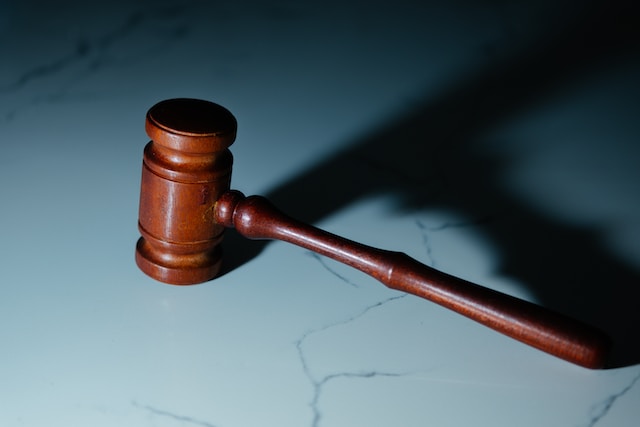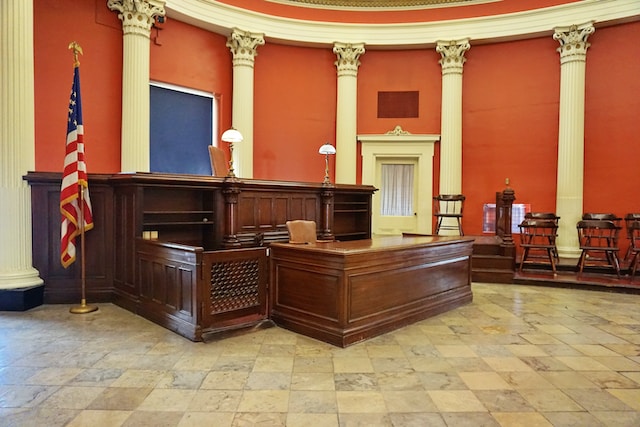Table of Contents:
- Table of Contents:
- Why Skiing Injuries Can Be Different
- Common Skiing Injuries
- Safety Precautions on the Slopes
- The Economic Impact of Skiing Injuries
- The Emotional and Psychological Impact
- How to Assist Recovery
- Understanding the Need for a Specialized Attorney
- How to Assess Your Attorney's Capabilities
- Qualities to Look for in a Ski Injury Attorney
- Resort Liabilities and Their Role
- Finding the Right Fit
- In Conclusion
Each winter, as snow blankets the mountains and transforms the landscape into a skier's paradise, millions are drawn to this mesmerizing sport. Skiing, for many, isn't just a recreational activity—it's an exhilarating escape from the mundaneness of everyday life, a chance to challenge oneself, and a unique way to connect with nature's pristine beauty. The sensation of gliding down powdery slopes, with the calm wind brushing against one's face, is an adrenaline-pumping experience that remains unmatched. However, like many things of great reward, it doesn't come without risks. The elements that make skiing exhilarating—speed, snowy terrains, and unpredictability—also render it susceptible to potential hazards.
Each season, alongside the thrilling stories of breathtaking downhill runs and triumphant slalom races, there are also accounts of unfortunate accidents and injuries. These injuries can vary from minor sprains to severe traumas, each presenting its own set of challenges and consequences. Following such incidents, the injured individuals often contend with physical pain as well as a complex web of legal issues, medical expenses, and the potential loss of income.
Navigating this maze can be daunting, and that's where the expertise of a seasoned ski injury attorney comes into play. These professionals can be invaluable allies with their specialized knowledge of skiing-related legalities and a keen understanding of the nuances of such cases. They champion the rights of the injured and ensure that they receive the rightful compensation and support they deserve in their path to recovery.
Why Skiing Injuries Can Be Different

The nature of skiing injuries often sets them apart from other recreational injuries. Collisions at high speeds, falls from significant heights, or even being trapped under snow can lead to critical injuries, requiring immediate and long-term medical care. Add to this the complexities of ski resort operations, equipment rentals, and the responsibilities of other skiers or snowboarders, and the scene is set for intricate legal battles.
Common Skiing Injuries
Understanding the types of skiing injuries can emphasize the significance of a specialized attorney. Some of the prevalent skiing injuries include:
ACL/PCL Tears: These knee injuries often happen when bindings don't release during a fall.
Skier's Thumb: A result of the ski pole strap pulling the thumb backward, causing a ligament tear.
Head Injuries: Even with helmets, collisions or tumbles can lead to concussions or more severe traumas.
Fractures: Bones can break from high-speed collisions or falls, especially in the legs.
Safety Precautions on the Slopes
While our primary emphasis is on ski injury attorneys, offering preventive advice can be invaluable to readers:
Wear Proper Equipment: Helmets, goggles, and protective gear should always be in the skiing kit.
Stay Within Designated Areas: Avoiding off-piste areas can reduce the risk of unforeseen hazards.
Know Your Limits: Refrain from tackling trails or jumps beyond your comfort and skill level.
The Economic Impact of Skiing Injuries
Skiing injuries can lead to considerable financial implications:
Immediate Medical Costs: Emergency treatments, surgeries, and initial hospital stays are covered.
Ongoing Care: From physiotherapy sessions to long-term therapies.
Loss of Income: Especially when the injury hinders the individual from returning to work.
The Emotional and Psychological Impact
Physical injuries are just the tip of the iceberg:
Trauma: The accident's memory can sometimes manifest as PTSD or similar conditions.
Depression: The limitations following an injury can lead to feelings of despair.
Anxiety: The inherent fear of skiing again or general anxiety stemming from the ordeal.
How to Assist Recovery
Concluding on a constructive note:
Seeking Counseling: Emotional healing is as crucial as physical recovery.
Joining Support Groups: Interacting with fellow victims can offer comfort.
Staying Active: Safe exercises can facilitate physical healing and uplift spirits.
Understanding the Need for a Specialized Attorney

Like many other activities, skiing presents a unique set of challenges and risks. The factors contributing to accidents are numerous, from treacherous terrains and unpredictable weather to equipment malfunctions. This is where a ski injury attorney comes into play. These professionals understand the laws, regulations, and standards governing ski resorts and related activities. They're not just personal injury lawyers; they specialize in ski-related incidents.
Imagine you or a loved one gets injured on the slopes. It's not just about the immediate pain and medical bills. There are lost wages, possible long-term rehabilitation, and even emotional trauma to consider. A general attorney might need to comprehend the nuances of such cases fully. But the best ski injury attorneys near you would be well-equipped to handle these complexities.
Skiing has its own set of challenges in terms of the sport and the legal implications of accidents. Terrain unpredictability, rapidly changing weather conditions, and occasional equipment malfunction can drastically elevate the risk factors. This is precisely why a specialized ski injury attorney is crucial.
Such professionals possess a deep-rooted knowledge of the intricacies surrounding skiing laws, resort responsibilities, and more. They understand that skiing accidents aren't just about the immediate injury. The aftermath often includes lost wages from being unable to work, the potential need for long-term rehabilitation, and the mental and emotional trauma victims undergo.
How to Assess Your Attorney's Capabilities

Identifying the best ski injury attorneys near you demands a thorough vetting process. Here are some pointers to guide your search:
Case Strategy: How does the attorney plan to approach your case? Their strategic planning can reveal their experience and dedication.
Communication: Continuous communication is essential. Your attorney should keep you updated about the case's progress and be available to answer queries.
Fee Structure: Understanding their fee structure upfront can save potential misunderstandings later. Some work on a 'no win, no fee' basis, while others might have a fixed price.
Qualities to Look for in a Ski Injury Attorney
When seeking the best ski injury attorneys near you, it's essential to consider their experience and track record. Here's what you should look for:
- Expertise in Skiing Laws: They should be familiar with local, state, and federal laws related to skiing and snowboarding.
- Experience with Ski Cases: Check their track record. How many ski injury cases have they handled? What were the outcomes?
- Negotiation Skills: Most personal injury cases get settled outside the court. Ensure your attorney is adept at negotiating favorable settlements.
Resort Liabilities and Their Role

Ski resorts are more than just scenic locations where enthusiasts gather to enjoy their winter pastimes. They're complex operations with many responsibilities, often unbeknownst to the average skier. These establishments need to ensure fun and memorable experiences and prioritize the safety and well-being of their patrons. Navigating the complexities of the energy sector, Oil Field Lawyers in Texas play a pivotal role in safeguarding the rights and interests of workers, landowners, and businesses alike.
Proper Signage: Straight and comprehensive signage is at the heart of ski safety. These signs guide skiers and snowboarders, providing vital information about trail difficulties, boundaries, and potential hazards. Whether it's a warning about an upcoming steep drop, a note about a closed trail, or guidance towards beginner areas, the signage should leave no room for misinterpretation. This aspect can lead skiers to avoid inadvertently putting themselves in dangerous situations.
Regular Maintenance: The dynamic nature of mountain terrains means that ski resorts must be on their toes regarding maintenance. Every inch of the ski area must be inspected regularly, from checking and repairing ski lifts to grooming ski trails and removing obstructions. This ensures that the natural wear and tear caused by environmental factors and daily use doesn't become a safety risk.
Ensuring Safe Skiing Conditions: Beyond the visible aspects of maintenance, resorts are responsible for monitoring and reacting to ever-changing mountain conditions. This can include managing avalanche risks, ensuring proper drainage to avoid icy patches, and addressing any issues from sudden weather changes. They must either rectify these hazardous conditions or clearly warn patrons if that's not immediately possible.
Training Staff Adequately: The staff at ski resorts play an essential role in the safety of visitors. From the professionals operating the ski lifts to the instructors guiding beginners and the patrollers monitoring the slopes, each member must be trained to respond to emergencies and daily challenges. Their training should encompass operational aspects and the soft skills needed to handle stressful situations and provide clear guidance to visitors.
Given the extensive liabilities ski resorts hold, it's no wonder that legal cases arising from skiing accidents can be complex. This is where the expertise of ski injury attorneys becomes invaluable. These specialists understand the breadth and depth of responsibilities that resorts shoulder and can adeptly identify if negligence or oversight on their part played a role in an accident. Whether it's a case of insufficient signage leading a beginner down a treacherous path or malfunctioning equipment causing harm, a proficient ski injury attorney will ensure that accountability is upheld.
Finding the Right Fit

In the vast and intricate world of legal representation, finding an attorney that aligns perfectly with your unique needs can seem like searching for a needle in a haystack. When it comes to skiing injuries, the stakes are even higher, given the specialized nature of such cases. The journey to find the best ski injury attorneys near you often begins in the vast realm of the internet.
Modern technology is a powerful tool in this quest with its myriad of platforms. Websites dedicated to legal services, such as Avvo, Martindale, or the American Bar Association, provide comprehensive lists of attorneys. These platforms enable you to refine search results by considering specializations, geographical locations, and even peer or client ratings. By making use of these tools, you can create a list of potential candidates.
But, of course, a name on a screen or a list of accolades only tells part of the story. The next crucial step is to engage with these professionals personally. Scheduling consultations, preferably face-to-face meetings, can be instrumental in this endeavor. Not only do most attorneys offer these initial meetings free of charge, but they also provide a mutual opportunity.
For you, it's a chance to present a snapshot of your case, gauge the attorney's approach, and assess their overall proficiency. It's an opening for the attorney to understand your needs and expectations and ascertain if they can provide the representation you seek. Through these interactions, you get a sense of their legal understanding and a feel for their interpersonal skills, ethos, and commitment—a holistic view vital for such a consequential partnership.
When choosing a ski injury attorney, it's crucial to consider the following attributes:
| Attribute | Description |
|---|---|
| Expertise in Skiing Laws | Familiarity with local, state, and federal laws related to skiing and snowboarding. |
| Experience with Ski Cases | A track record of handling ski injury cases and their outcomes. |
| Genuine Client Testimonials | Authentic reviews that provide insights into their credibility and effectiveness. |
| Negotiation Skills | Ability to negotiate favorable settlements, given that most cases are settled outside court. |
Remember, the attorney-client relationship is based on trust. While their expertise is crucial, ensure that you're comfortable discussing your case with them and that they're genuinely invested in your well-being.
In Conclusion
Skiing is a blend of thrill, adventure, and natural beauty that attracts millions annually. While the joys are unparalleled, the potential risks are real. Taking precautions and being informed about the possible consequences of accidents on the slopes is paramount. If misfortune strikes, knowing that specialized ski injury attorneys are there to advocate for your rights and ensure fair compensation can provide much-needed solace.
These attorneys understand the complexities of skiing incidents, the profound impacts—both physical and emotional—and the nuances of the law. As you strap on your skis and head out to embrace the snowy embrace of the mountains, remember to prioritize safety and be informed. And if you ever need to, seek out the best ski injury attorney near you, armed with the knowledge from this article. Stay safe, and happy skiing!